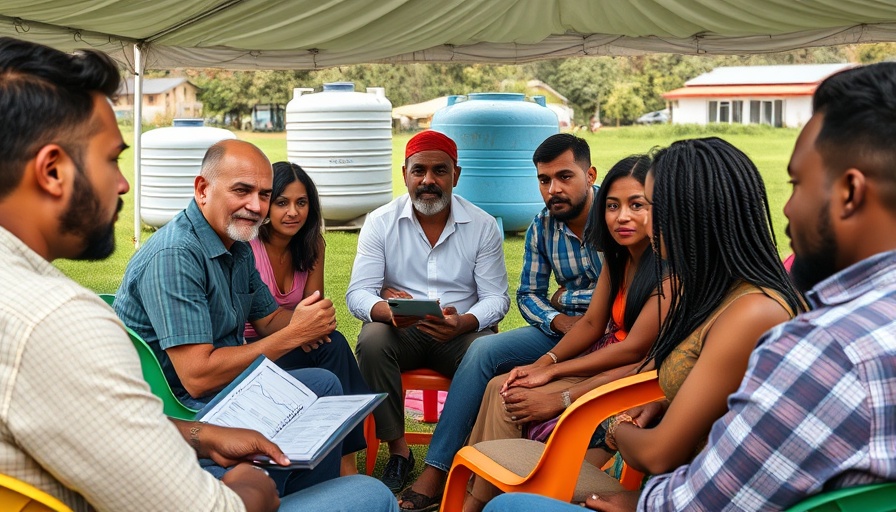
Introducing Integrated Outbreak Analytics (IOA): A New Era in Public Health Response
In the face of global health crises, the World Health Organization (WHO) is pioneering innovative strategies to tackle outbreaks effectively. This upcoming webinar on September 3, 2025, will delve into Integrated Outbreak Analytics (IOA)—a comprehensive approach that promises to revolutionize public health responses by adopting a multidisciplinary perspective. The IOA framework emphasizes collaboration and locally-founded solutions that cater to the unique health challenges faced by different countries.
Why Integrated Outbreak Analytics Matters
The IOA methodology is designed to ensure a sustainable, contextual, and accountable approach to health emergencies. The ability to deftly respond to disease outbreaks is not merely a technical necessity but a life-saving endeavor, especially in times of pandemics. The recently implemented IOA principles encompass dynamic community engagement and the utilization of local data to enhance overall responsiveness. By harnessing local insights, the IOA aims to foster environments that can better handle disease dynamics and the resulting community impacts.
The Webinar Breakdown: Who Will Speak?
Participants will gain invaluable insights from notable experts, including Jérôme Pfaffmann Zambruni from UNICEF, who will highlight the fundamental aspects of IOA. Dr. Danny Kalala from the DRC’s Ministry of Public Health will showcase real-world applications of the IOA framework in managing the Mpox outbreak. Meanwhile, the creative strategies implemented to enhance measles prevention and control in the DRC will be explored by Neema Masika Musyenene from MSF Epicentre.
Discover the IOA Toolkit
A significant outcome of the webinar will be the presentation of the IOA toolkit. Published in English and French, this toolkit encapsulates essential principles, procedures, and practices aimed at fortifying public health responses during emergencies. Attendees can expect to access practical guidance for establishing IOA cells, along with standard operating procedures and numerous templates and case studies aimed to streamline outbreak responses.
The Importance of Health Education in Outbreak Management
The role of education in public health cannot be overstated. Resources like the IOA toolkit exceed traditional educational frameworks by providing concrete tools for action during crises. Knowledge is power—this sentiment resonates especially during outbreaks when informed communities can enact proactive measures. By promoting health literacy, communities are better equipped to respond effectively to emerging health threats.
Connecting Local and Global Health Initiatives
The IOA approach fosters a symbiotic relationship between local initiatives and global health frameworks. As countries cultivate their unique responses to health crises, they contribute to a collective understanding that elevates public health responses across the globe. This interconnectedness ensures that insights gained from addressing issues like the Mpox outbreak or measles prevention in the DRC can be shared and adapted worldwide.
Call to Action: Join the Conversation
As the world continues to navigate complex health challenges, participation in education and awareness initiatives is crucial. By attending the WHO EPI-WIN webinar, you can be part of an important conversation that shapes the future of public health response. Register now to explore how you can contribute to a healthier, more resilient world. Register for the webinar here.
Final Thoughts on Global Health Resilience
The IOA framework not only equips nations to handle immediate health crises but also fortifies their resilience against future epidemics. By combining lessons learned from past outbreaks with innovative tools and community-focused strategies, we can foster a healthier global community. Embracing the principles shared during such webinars will empower citizens and health professionals alike to advocate for better health measures globally.
 Add Row
Add Row  Add
Add 




Write A Comment